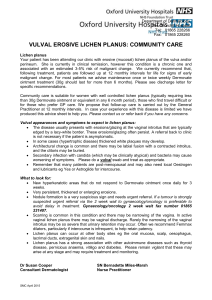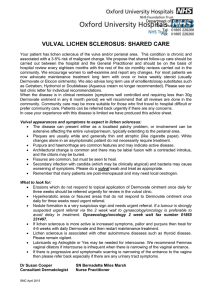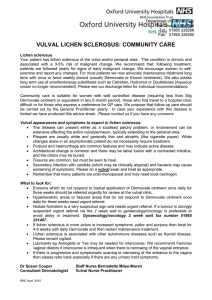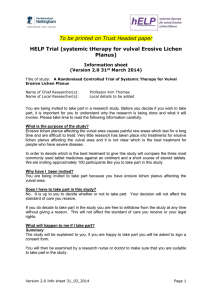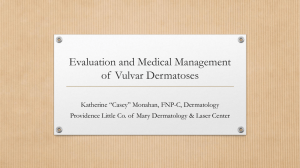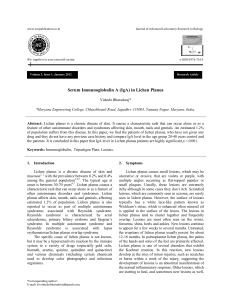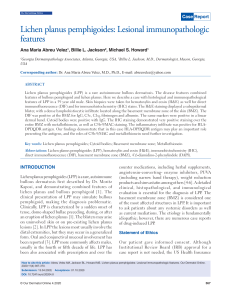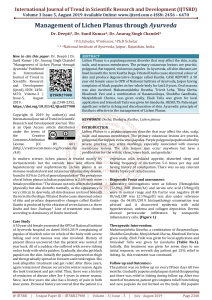VULVAL EROSIVE LICHEN PLANUS: SHARED CARE
advertisement
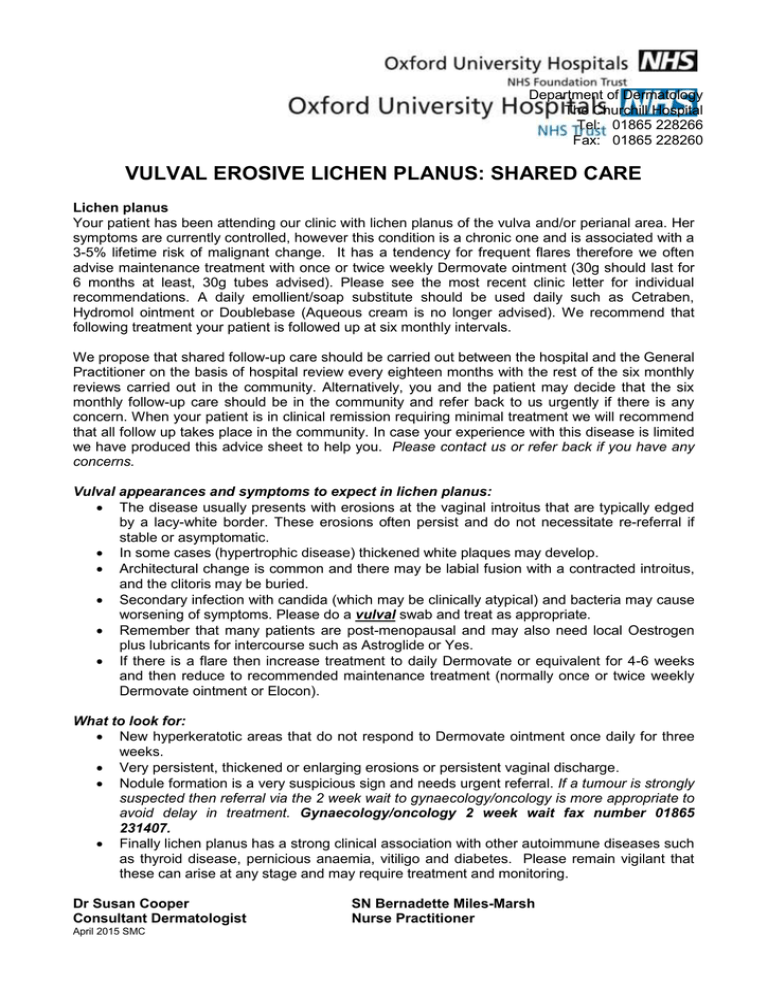
Department of Dermatology The Churchill Hospital Tel: 01865 228266 Fax: 01865 228260 VULVAL EROSIVE LICHEN PLANUS: SHARED CARE Lichen planus Your patient has been attending our clinic with lichen planus of the vulva and/or perianal area. Her symptoms are currently controlled, however this condition is a chronic one and is associated with a 3-5% lifetime risk of malignant change. It has a tendency for frequent flares therefore we often advise maintenance treatment with once or twice weekly Dermovate ointment (30g should last for 6 months at least, 30g tubes advised). Please see the most recent clinic letter for individual recommendations. A daily emollient/soap substitute should be used daily such as Cetraben, Hydromol ointment or Doublebase (Aqueous cream is no longer advised). We recommend that following treatment your patient is followed up at six monthly intervals. We propose that shared follow-up care should be carried out between the hospital and the General Practitioner on the basis of hospital review every eighteen months with the rest of the six monthly reviews carried out in the community. Alternatively, you and the patient may decide that the six monthly follow-up care should be in the community and refer back to us urgently if there is any concern. When your patient is in clinical remission requiring minimal treatment we will recommend that all follow up takes place in the community. In case your experience with this disease is limited we have produced this advice sheet to help you. Please contact us or refer back if you have any concerns. Vulval appearances and symptoms to expect in lichen planus: The disease usually presents with erosions at the vaginal introitus that are typically edged by a lacy-white border. These erosions often persist and do not necessitate re-referral if stable or asymptomatic. In some cases (hypertrophic disease) thickened white plaques may develop. Architectural change is common and there may be labial fusion with a contracted introitus, and the clitoris may be buried. Secondary infection with candida (which may be clinically atypical) and bacteria may cause worsening of symptoms. Please do a vulval swab and treat as appropriate. Remember that many patients are post-menopausal and may also need local Oestrogen plus lubricants for intercourse such as Astroglide or Yes. If there is a flare then increase treatment to daily Dermovate or equivalent for 4-6 weeks and then reduce to recommended maintenance treatment (normally once or twice weekly Dermovate ointment or Elocon). What to look for: New hyperkeratotic areas that do not respond to Dermovate ointment once daily for three weeks. Very persistent, thickened or enlarging erosions or persistent vaginal discharge. Nodule formation is a very suspicious sign and needs urgent referral. If a tumour is strongly suspected then referral via the 2 week wait to gynaecology/oncology is more appropriate to avoid delay in treatment. Gynaecology/oncology 2 week wait fax number 01865 231407. Finally lichen planus has a strong clinical association with other autoimmune diseases such as thyroid disease, pernicious anaemia, vitiligo and diabetes. Please remain vigilant that these can arise at any stage and may require treatment and monitoring. Dr Susan Cooper Consultant Dermatologist April 2015 SMC SN Bernadette Miles-Marsh Nurse Practitioner
